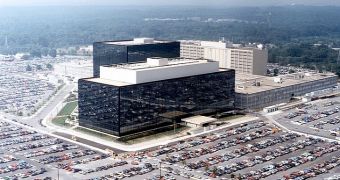The NSA is apparently working towards building its own transparency reports in a similar manner to how the Internet companies do.
According to a statement made by Rick Ledgett, NSA deputy director, during the TED Conference in Vancouver, the intelligence agency wants to be more forthcoming with the public.
“The vulnerabilities we find, the overwhelming majority we disclose to the people who are responsible for manufacturing or developing those products. We’re actually working on a proposal right now to be transparent and to publish transparency reports in the same way the Internet companies do,” said Ledgett.
He didn’t exactly give any type of detail about what exactly such a report would contain, but given just how silly the rules are for tech companies, it’s easy to assume that there wouldn’t really be any ground-breaking information in the NSA’s transparency report.
As a reminder, tech companies have been pressuring the US government for months to be allowed to reveal more information about the data requests they receive from authorities. The White House eventually agreed, but tech companies are incredulous about the way they are now allowed to give out data – in batches of 1,000. Basically, if Google receives 4,002 or 4,998 secretive data requests, they must be marked in the reports as “between 4,000 and 4,999,” making for an extremely wide range.
Transparency reports of smaller companies look even sillier since they barely receive any FISA requests at all, but they must mention them between “0 and 999.”
Furthermore, Ledgett defended the National Security Agency against claims from Edward Snowden that there’s no proof that the extensive data gathering of telephony metadata has helped US security.
While Ledgett is no stranger to slamming Edward Snowden just for the sake of it, through this statement, he is ignoring two reports coming from reputable sources (on which Snowden had based his argument). One of them is the panel that Barack Obama set in place to review the NSA’s activity, which concluded that there was no proof that any type of terrorist attack or any threat to the United States or its allies was stopped thanks to the phone call metadata collection program.
The second source is a study by the New America Foundation that went over 225 terrorism cases inside the US since September 11, 2001. Aside from a case when a San Diego taxi driver was convicted for sending money to a terrorist group in Somalia, there’s been no actual use of the program to prevent any attacks.

 14 DAY TRIAL //
14 DAY TRIAL //